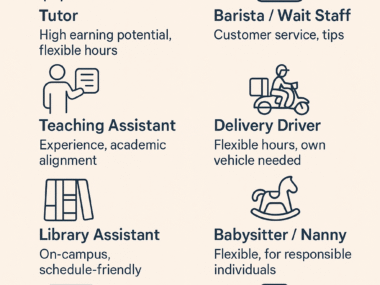Are you considering migrating to Australia as an unskilled worker? If so, you’re in good company! Many individuals from various backgrounds are looking for opportunities in Australia’s thriving job market, particularly in sectors that are actively seeking unskilled labor.
In this article, we’ll explore unskilled visa sponsorship jobs available in Australia, discuss the application process, and provide valuable insights to help you navigate this journey.
Understanding the Landscape of Unskilled Jobs in Australia
The Current Job Market
Australia is experiencing a significant labor shortage, exacerbated by the COVID-19 pandemic. Currently, there are over 500,000 job vacancies across the country, including a high demand for unskilled workers. These shortages are particularly pronounced in regional areas, making it an opportune time for immigrants seeking employment.
Regional Areas vs. Major Cities
Most job opportunities are concentrated outside of the major cities like Sydney, Melbourne, and Brisbane. The Australian government has classified any area outside of these cities as a regional area. By targeting regional employment, immigrants not only have a higher chance of finding jobs but also can benefit from various government incentives aimed at attracting workers to these less populated regions.
The Benefits of Migrating as an Unskilled Worker
Migrating to Australia as an unskilled worker comes with several advantages:
- No Specific Experience Required: Many unskilled jobs don’t require prior experience, making them accessible to a broader range of applicants.
- No Formal Education Required: You typically don’t need higher education qualifications, allowing those without a formal degree to find work.
- Visa Sponsorship: Employers often provide visa sponsorship, simplifying the immigration process for you.
- Support from Employers: Some employers may offer assistance with relocation costs, including airfare and accommodation.
- Earning Potential: Unskilled workers can earn approximately $30 AUD per hour, providing a decent income to support themselves and their families.
Understanding the Visa Process
The Temporary Skill Shortage (TSS) Visa subclass 482 is one of the primary pathways for unskilled workers to migrate to Australia. This visa allows you to work temporarily in Australia, with the possibility of transitioning to permanent residency later.
Key Points About the TSS Visa:
- Employer Sponsorship: To obtain this visa, you must have a job offer from an Australian employer willing to sponsor you.
- Length of Stay: The visa is typically granted for up to four years, depending on your occupation and employer’s needs.
- Pathway to Permanent Residency: If you play your cards right, this visa can lead to permanent residency opportunities in Australia.
Exploring Designated Area Migration Agreements (DAMA)
DAMA is a significant factor in the regional migration strategy. It allows designated regional areas to develop tailored agreements with the Australian government to attract skilled and unskilled workers.
What You Should Know About DAMA:
- Skills Assessment: In many cases, regions can assess your skills locally, meaning you may not have to go through formal assessment bodies, making it easier for you to get a job.
- Priority for Regional Areas: If you’re applying for jobs in DAMA-designated regions, your application may be prioritized over those in major cities.
Unskilled Job Opportunities in Australia
Types of Unskilled Jobs Available
Now that you understand the landscape, let’s dive into the types of unskilled jobs available in Australia:
- Agricultural Jobs
Australia has a robust agricultural sector that relies heavily on seasonal workers. Opportunities abound for roles like fruit picking, farm laborers, and machinery operators. The government is actively encouraging migrants to fill these positions, especially during harvest seasons. - Construction Laborers
The construction industry is booming, with a high demand for unskilled labor. Roles in this sector may include general laborers, site cleaners, and assistants to skilled tradespeople. With numerous ongoing projects across the country, there’s a constant need for manpower. - Hospitality Positions
The hospitality industry offers numerous unskilled job opportunities, including kitchen hands, waitstaff, and housekeeping roles. Many restaurants, hotels, and resorts in regional areas are eager to hire workers to keep up with tourism demands. - Cleaning Services
Both domestic and commercial cleaning services are in demand. Positions may involve general cleaning, specialized cleaning (like industrial cleaning), and maintaining public spaces. The increasing focus on hygiene and cleanliness, especially post-pandemic, has made these roles essential. - Warehouse and Distribution Jobs
With the rise of online shopping, warehouses need unskilled workers for roles like pickers, packers, and forklift operators. These jobs are often available in regional areas, contributing to the local economy. - Retail Positions
Unskilled workers can find opportunities in retail, including positions as sales assistants, stock clerks, and cashiers. Retail roles can be flexible, allowing workers to choose shifts that suit their schedules. - Transportation and Delivery Jobs
The demand for delivery drivers has surged, especially with e-commerce’s rapid growth. Many companies are looking for drivers to deliver goods locally and regionally. - Manufacturing Jobs
The manufacturing sector in Australia offers various unskilled roles, including assembly line workers, quality control inspectors, and packaging staff.
Finding Unskilled Jobs in Australia
Job Search Strategies
Searching for unskilled jobs in Australia can be straightforward if you know where to look. Here are some effective strategies:
- Online Job Portals
Websites like Seek, Indeed, and Gumtree are popular platforms where you can search for unskilled jobs. Use keywords like “unskilled jobs,” “visa sponsorship,” and specific job titles when searching. - Networking
Building a network can be incredibly beneficial. Utilize social media platforms like LinkedIn to connect with potential employers and join relevant groups where job openings are posted. Attend job fairs and local community events to meet potential employers. - Direct Applications
Many companies prefer direct applications. If you have a specific employer in mind, visit their website and apply directly for any available positions. - Recruitment Agencies
Engage with recruitment agencies specializing in unskilled labor. They often have access to job vacancies not advertised publicly and can help match you with suitable employers. - Local Community Boards
Check community bulletin boards or local social media groups. Many regional employers post job openings in these spaces to attract local talent. - Use Social Media
Platforms like Facebook and Instagram often have groups dedicated to job seekers and employers in specific regions. Join these groups to stay updated on job openings.
The Application Process for Unskilled Jobs
Preparing Your Application
To increase your chances of landing a job, it’s essential to have a well-prepared application. Here are some tips:
- Resume and Cover Letter
Craft a clear and concise resume highlighting your skills and any relevant experience, even if it’s not directly related to the job. Write a tailored cover letter for each application to explain why you are interested in the role and how you can contribute. Use keywords from the job description to align your application with what employers are looking for. - LinkedIn Profile
Create a professional LinkedIn profile that showcases your skills, experiences, and any endorsements from previous employers or colleagues. Many employers use LinkedIn to scout for potential candidates. Regularly update your profile and engage with industry-related content to increase your visibility. - Documentation
Ensure you have all necessary documents, including a valid passport, police clearance, and health checks. Having a driver’s license can also be beneficial, especially for jobs that require commuting to remote areas. Prepare copies of your qualifications and any references that may support your application.
Steps in the Application Process
- Job Search: Use the strategies mentioned earlier to find job openings.
- Application: Submit your resume and cover letter through the platform specified in the job listing or directly to the employer.
- Interview: If selected, you may be invited for an interview. Prepare by researching the company and practicing common interview questions. Show enthusiasm and a willingness to learn, as many employers value a positive attitude over specific experience.
- Job Offer: If successful, you will receive a job offer. Ensure you discuss the terms, including salary and relocation support. Clarify any uncertainties regarding your role and responsibilities.
- Visa Application: Once you accept the offer, your employer will assist you in applying for the TSS Visa subclass 482. Gather all required documents promptly to avoid delays in the visa process.
Common Challenges and How to Overcome Them
Language Barriers
If English is not your first language, you might face challenges in communication. Consider enrolling in English language courses to improve your proficiency, which can enhance your employability. Many community colleges and adult education centers offer free or low-cost language classes.
Understanding Australian Work Culture
Australian work culture may differ from what you are accustomed to. Familiarize yourself with local customs, workplace etiquette, and communication styles to better integrate into your new environment. Key aspects of Australian work culture include:
- Casual Environment: Many workplaces have a casual atmosphere, with employees encouraged to express their opinions and ideas openly.
- Work-Life Balance: Australians value a good work-life balance, often taking time off to enjoy leisure activities.
- Direct Communication: Australians tend to communicate directly and appreciate honesty in discussions.
Limited Job Experience
If you lack experience, focus on transferable skills that can apply to the jobs you are applying for. Highlight soft skills such as teamwork, communication, and adaptability. Consider volunteering or taking part in community projects to gain some local experience, which can enhance your resume.
Financial Considerations
Moving to a new country can be financially challenging. Research the cost of living in your chosen region and budget accordingly. Save money before your move and look for temporary accommodation while you search for a permanent place to live.
Cultural Adjustment
Relocating to a new country often involves a period of cultural adjustment. Stay connected with friends and family back home for emotional support, and consider joining local immigrant communities to meet people with similar experiences. Participate in local events to immerse yourself in Australian culture and build a sense of belonging.
Conclusion
Migrating to Australia as an unskilled worker can be an enriching experience, opening doors to new opportunities and a better life. With a booming job market, various available positions, and pathways to permanent residency, now is an excellent time to consider taking the leap. By utilizing the resources and strategies outlined in this guide, you can successfully navigate the job search and application process.
Whether you’re interested in agriculture, construction, hospitality, or another sector, Australia is ready to welcome you. Remember to remain persistent, be open to new experiences, and stay focused on your goals. Your journey to a fulfilling career in Australia starts here!



